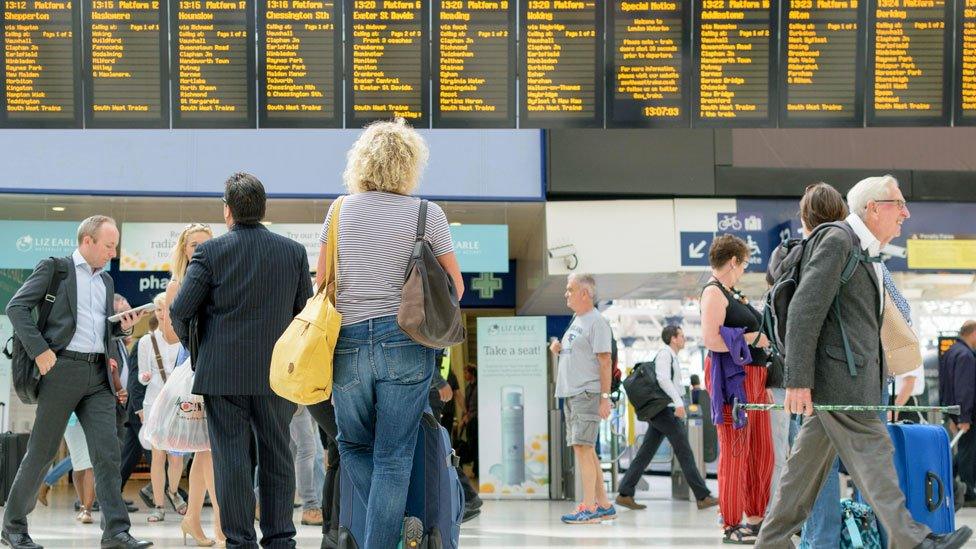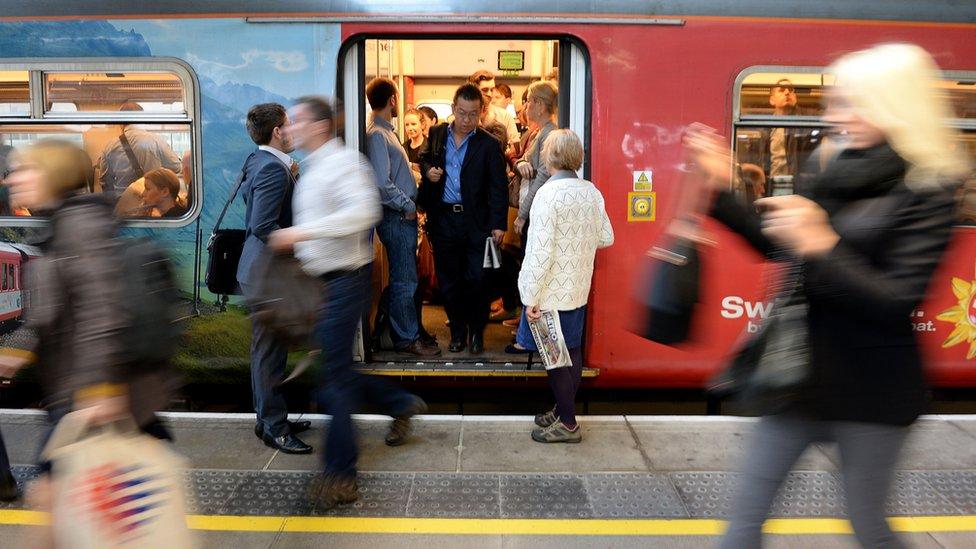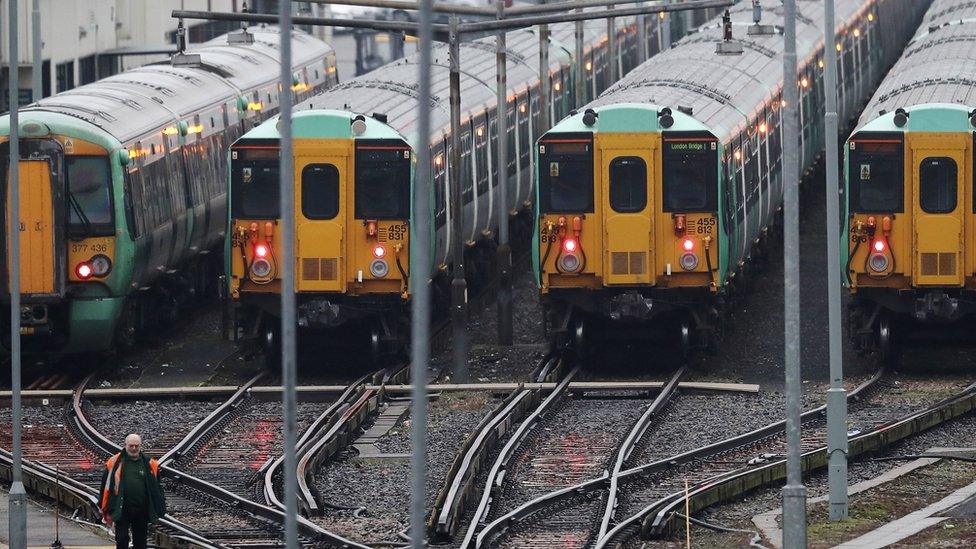How did it go so wrong for Govia Thameslink?
- Published
- comments

The headlines faded after day two but it has been an appallingly shocking week for nearly half a million Govia Thameslink commuters.
After all the grand talk of a great new timetable and 400 new trains, and more seats, commuters have been reduced to turning up at the station and hoping for the best.
Is this really acceptable? Can anyone say it went well?
Most of the commuters work for businesses that go through transition and plan and compromise accordingly.
That has clearly not happened here and, somewhere, errors have obviously been made. Many people are ending up with worse services than before but paying the same price.
How is that reasonable ?
The Department for Transport (DfT) which employs Govia Thameslink Railway (GTR) on a management contract has been strangely quiet.
Commuters failed
Questions will inevitably be asked of them. Is there a coherent oversight over these complex changes? Commuters would say not.
GTR - which runs Southern, Thameslink Great Northern and Gatwick Express - has talked the talk but failed abysmally at running anything near the required service.
What really irks passengers is they were only told a new reduced timetable would be introduced on Tuesday. Why was that left so late?
There have not been enough route-trained drivers for the launch of this timetable and planning has clearly failed. For most passengers that is staggering.
Politically, it is no wonder the calls for renationalisation grow stronger. The current system of a mix of public and a large private company has failed commuters. Accountability has become diluted.
On what should have been its proudest hour and the delivery of Thameslink, the rail industry in this incarnation couldn't get it to work.
And this could last for weeks.
Update: The Dft has been in touch and says it hasn't been quiet. In fact, the Transport Secretary Chris Grayling addressed the house yesterday:
"What we have seen in the last few days has not been good enough. No one should underestimate the logistical challenge of introducing a timetable change.
"The changes have been made for a very good reason: they mean a big expansion of services across the country. A timetable change of such a scale involves reorganising staff rotas, training staff for new routes, and reorganising how we deploy our trains.
"It needed months of preparation, and I am afraid that a number of things went wrong, but most particularly the fact that for the second time in six months, Network Rail was far too late in finalising planned timetable changes and left the rest of the industry struggling to catch up.
"I am not happy with that at all and I have told the leadership of Network Rail that it cannot happen again."
- Published20 May 2018

- Published20 May 2018

- Published16 May 2018

- Published25 April 2018